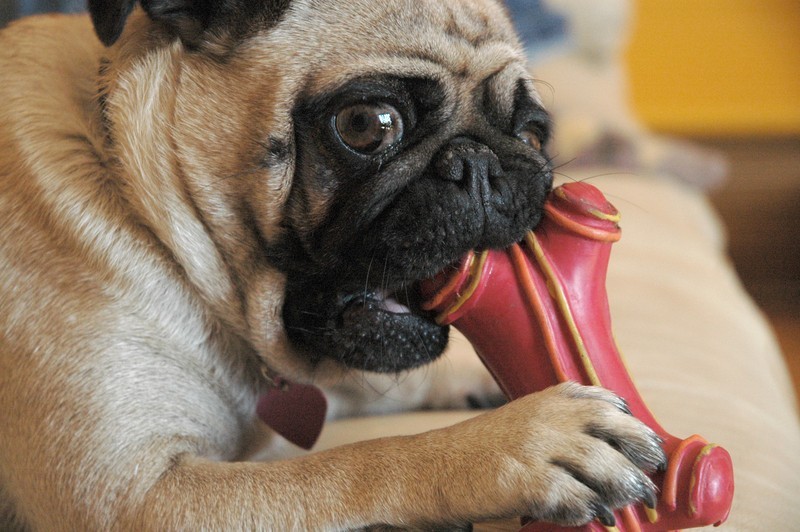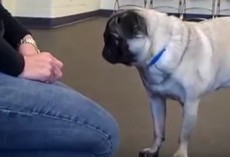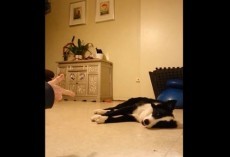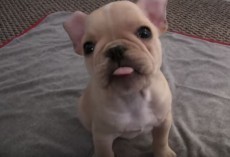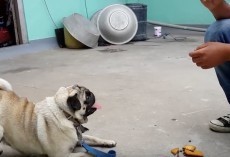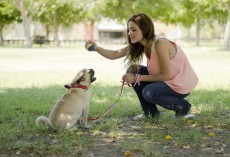If your pup was not trained in her younger years to perform a command prior to being rewarded this is one technique you can try. This will help her realize that not everything comes to her easily. There are other tips below to consider as well that'll hopefully help her overcome her possessiveness:
You may also notice an increase in possessive tendencies — what started as possessiveness of toys has escalated to a possessive attitude towards food, territory, and family members.
While this behavior stems from a natural instinct to express anxiety or fear over a perceived threat, it can lead to serious problems in the future.
So it’s crucial to address the behavior in its early stages, making it clear that you’re the Pack Leader. Here are a few tips on how to prevent and correct possessive behaviors:
Introduce the promise of good things
One tactic for putting a stop to protective tendencies in a dog is to teach him that good things happen when other humans or animals approach their food or belongings from a young age.
Reward patience and good behavior
You can help your dog develop self-control, respect, and good behaviors by teaching your pup that food, treats, and toys must be earned.
Show ownership
Before giving food, treats, or toys to your dog, ensure she recognizes that you are the owner — not her. One tactic for asserting ownership is to have your dog wait before accessing her food or belongings.
When to consult with a trainer
If your dog has escalated the behavior and exhibits signs of aggression, such as growling, snapping, or biting, do not attempt to correct this on your own.
If your Pug isn't responding to any of the above tips from Cesar's Way it may be time to get in touch with a trainer and ask them for advice. They may recommend you bring your pooch in for some training or provide you additional training tips to try. Be patient with your pooch during the process but still act in command — hopefully she'll come around and give up the fight!
